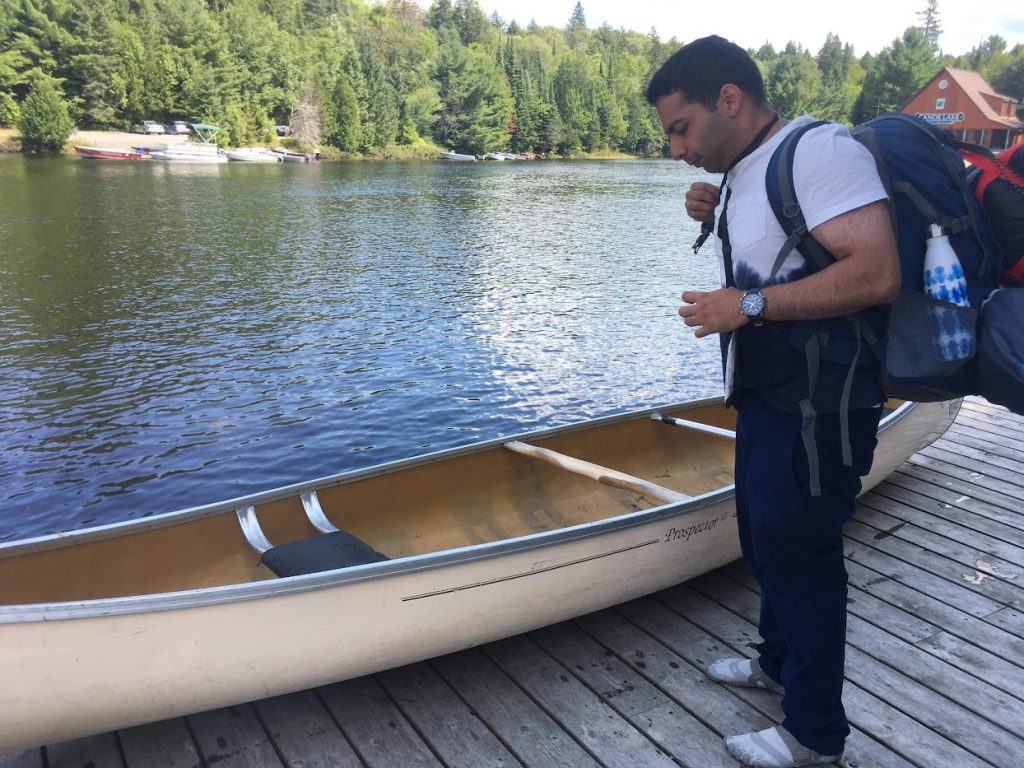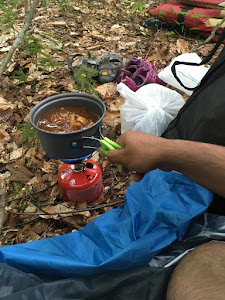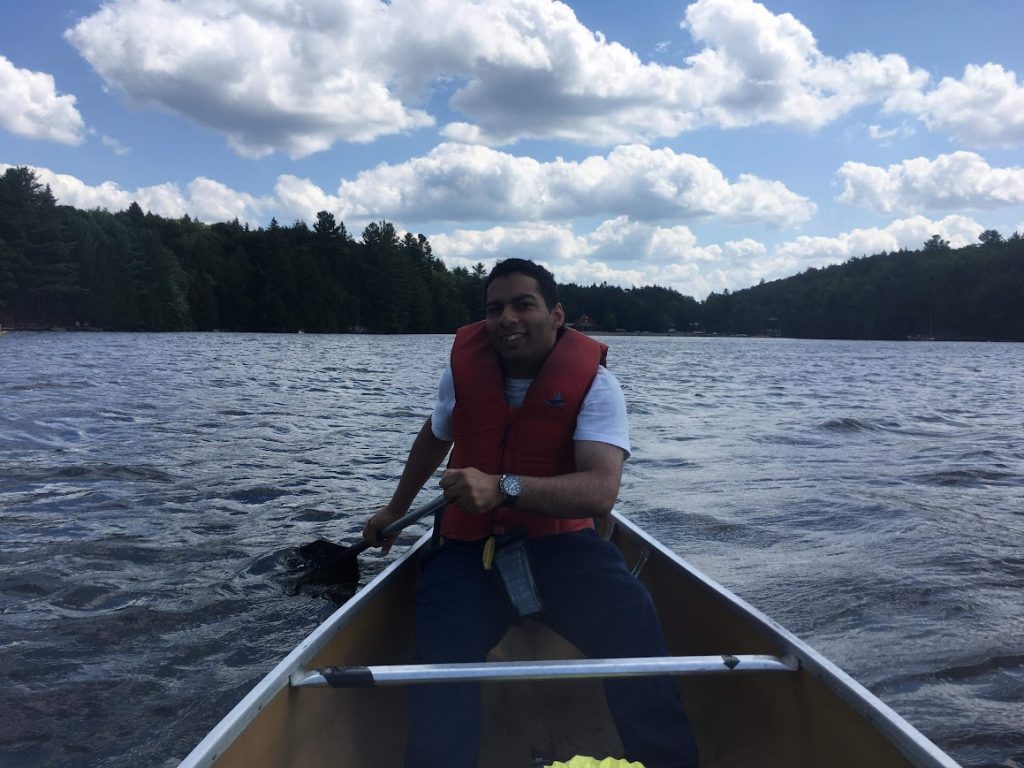Know your limits. Understand them. Then surpass them.
That is how you become stronger.
This past weekend, I had what I can only describe as “an experience”. Not necessarily a good or bad one, though realistically a bit of both. It was one of those experiences that I tried to plan for, failed miserably due to the uncooperative nature of reality, made the best of the situation, and ended up overcoming the challenges that it presented.
I decided to go on a backcountry camping trip to Algonquin National Park. Of the many campsites available, I chose one that seemed relatively close and didn’t require much traveling to get to. Here’s the fun part though: the site I picked required canoeing and hiking to get to (that part was deliberate, I wanted a site that I can only access by canoe). What I didn’t quite expect was how much canoeing and hiking I would need to do. Turns out, the site I picked required multiple portions of hiking and canoeing to access, which would have taken nearly 7 hours at the rate I was going (considering it was my first ever serious camping trip, in hindsight, a backcountry canoe site was probably not the best choice). Since the canoe was a rental, we had to carry it and all of the gear until we reached the campsite. The canoe alone weighed 52lbs (15′ Standard), and I had a 30lb backpack with additional gear and clothing. That equated to about 82lbs or more of weight between canoeing portions of the trip (the total hiking distance was about 3km, give or take).

Setting off from Canoe lake access point, it didn’t take long to figure out where we needed to go. This was the longest canoeing portion, taking approximately 2 hours. When we arrived at the first portage, the most significant hiking portion of the trip began, totaling approximately 1.5-2km. Between having to stop occasionally to make sure we were going the right way, and due to needing to take breaks, it took approximately 1.5 hours to reach the next canoeing portion of the trip. This portion of the trip came with another unexpected challenge: a shallow portion of the lake barricaded by many fallen trees, requiring wading through waist-deep water while pushing the canoe along and above the logs. Luckily, that portion was a short 56m, followed by another short canoeing portion (I use the word “short” loosely, it still took about 30-45 minutes to cross that smaller lake). The next portage is where we hit a snag: multiple obstacles, and that fact that it had been nearly 5.5 hours of travel time at that point forced us to consider stopping (we weren’t confident about the state of the trail past that to continue onto the campsite I had reserved, as there was still another canoeing portion and another short hike left in our trip). Since it was nearly 8pm at that point, we set up camp, had a quick meal, and went to sleep. The mosquitoes, though plentiful, didn’t do much to keep us awake all night.

When we woke up the next morning, the clouds had rolled in. The previous day had been beautiful and clear, but that gave us false hope. It started raining by noon on Saturday. We decided pretty quickly that we should leave the same afternoon, instead of staying the extra night as planned, since we weren’t sure how long it would take to make the return journey. The rain wasn’t letting up, so we took down the campsite around 3pm and set off on the return journey to Canoe lake. The return journey was less eventful and far less challenging, since we knew where we were going, and I needed to take fewer breaks once I’d figured out a comfortable position to hold the canoe. That was really the toughest part. Between the weight and the constant shifting of the hiking trail (resulting in the canoe shifting around), it was a challenge to maintain the delicate balance required for a comfortable and relatively painless hike (I still required occasional breaks to give my shoulders a rest).
I shouldn’t really say the return hike was uneventful. We did spot a young moose along the way back. It was curious, observing me in particular due to the odd shape I presented (with the canoe on my shoulders). It took a few minutes, but the moose eventually lost interest and moved on, allowing us to progress. We didn’t take any chances, as it looked young and hungry. Getting attacked by a moose (and a black bear, for that matter) was not on my list of things I wanted to do on this trip. Hunting a moose is definitely on the bucket list, but that’s a long term goal (I need to get my hunting licenses in order before I even consider attempting that).
I conquered the hike in a lot less time than the previous day. It went far smoother. Then came the final canoe back to Canoe lake access point, which was mostly against the current and the wind, making the journey last nearly 2 hours. All said, the total journey back took about 4-4.5 hours. We returned the canoe, had a quick shower (backcountry canoe sites do not come equipped with shower or toilet facilities), ate dinner, and started the drive back. Since it was getting late, we stopped at a rest area near the highway and slept in my car.
My body still hurts. My shoulders are killing me, as is the rest of my upper body. Taking deep enough breaths sends spasms through most of my muscles. I’m also covered in mosquito bites (the itching is annoying, it’s been a while since I’ve dealt with mosquito bites of this scale, especially considering I grew up in Sri Lanka, where mosquito bites were mere trifles).

Looking back though, it was a good experience. It taught me that, despite my initial limitations, I was capable of conquering them. It reminded me of the most important lesson I’d learned in basic training: your body can overcome any limitations if you set your mind to it. Instructors at basic training knew that too, and knew our limits, knew just how much they needed to push to allow us to surpass those limits without breaking us. The canoeing and hiking was definitely beyond my limits (the canoeing was easier, and I barely felt the soreness in my muscles as I paddled; the hiking was harder due to the weight on my shoulders, but not too bad with occasional breaks), though not that much further that I couldn’t overcome them with willpower. Every time I took a break and had to reload the canoe onto my shoulders, it took longer and longer as my arms screamed in pain, but once the canoe was on my shoulders, it was smooth sailing until my shoulders complained, which was the right time to take a break.
Know your limits. Understand them thoroughly. Then push yourself to do something that’s slightly beyond those limits, or even further beyond. Convince yourself that your body will take whatever you throw at it. Then, conquer those limits, and set yourself a new limit. Minor injuries in the process are easily dealt with, just tough it out and keep going, and your body will recover from them. Every time you do that, your body becomes stronger and more resilient. And, above all, you become more mentally resilient, understanding that all it took was willpower to surpass your limits.